August in history
Being a student of history, whenever I get some free time in my daily socio-political activities, I try to study various important events that have played a key role in changing the course of human history. One of the major events of the previous century is the Second World War. The massive casualties, huge destruction and other horrific losses have not yet been accurately estimated.
However, the dropping nuclear bombs on the Japanese cities of Hiroshima and Nagasaki on 6th and 9th of August, 1945 resulted in lowering the morale of the Japanese leadership, and then on August 15, the Japanese emperor officially announced the surrender.
As soon as Japan accepted defeat, major changes in world history began to take place. Several new countries began to emerge on the world map, and independence movements gained momentum in various colonial countries including British India.
Lord Mountbatten, the last viceroy of the British Empire, who also served as a naval officer in the World War, was appointed with a one-point agenda to divide India. However, according to some historians, he was interested in making the Second World War victory more memorable by announcing to divide India on August 15. The consequences of this decision of the viceroy had to be borne by millions of innocent people on both sides of the border on the occasion of Partition.
The question is sometimes raised: when both countries achieved independence together at the same time, why is it that Pakistan celebrates its Independence Day on August 14 and India on August 15? In this regard, BBC Urdu, in its investigative reports, disclosed that no one was confused about Pakistan’s Independence Day in the first year of independence.
Similarly, I remember that on August 18, 2008, former president Pervez Musharraf announced his resignation. There is no doubt that Musharraf was one of the most powerful rulers of Pakistan, but the political will, wisdom and courage demonstrated by the PPP is indeed a golden chapter of the tireless struggle to strengthen democracy in the country and empower the people as the source of power.
Two years ago, in the month of August, a major change in our region took place in the form of the return of the Taliban to Kabul. Undoubtedly, the United States and the Western allies spent billions of dollars in Afghanistan in twenty years, with a hope that the trained Afghan security agencies will counter the advancement of the Taliban. However, by the start of August 2021, the Taliban had taken control of the rural districts, and finally on August 15th, they reached the capital Kabul without any resistance.
This year, the Taliban regime in Afghanistan announced a public holiday on the 15th of August to mark the second anniversary of its return to power. On the completion of two years, the white flags of the Islamic Emirate of Afghanistan were hoisted all over the country. In my view, when the Taliban came to power in Afghanistan in the nineties, the western border of Pakistan became secure. Unfortunately, today the situation is quite different and complicated.
In our national history, the 17th of the month of August is also important in the sense that on this day in 1988, the death of president Gen Ziaul Haq and the then US ambassador to Pakistan in a mysterious air accident is still an unsolved mystery. The effects of the social changes that took place at the state level in our society during his era can still be felt today. In this regard, the courageous role of legendary leader Mohtarma Benazir Bhutto is worth writing in golden words in our national political history.
The writer is a former member of the
National Assembly and patron-in-chief of the Pakistan Hindu Council.
He tweets @RVankwani
-
 Sterling K. Brown's Wife Reveals If She Gets 'Paradise' Spoilers
Sterling K. Brown's Wife Reveals If She Gets 'Paradise' Spoilers -
 Rape Suspect Flees Aboard After Mistaken Prison Release
Rape Suspect Flees Aboard After Mistaken Prison Release -
 Jack Hughes' Patriotic Words Spark Calls For Tate McRae To Dump Her Boyfriend
Jack Hughes' Patriotic Words Spark Calls For Tate McRae To Dump Her Boyfriend -
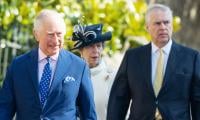 Andrew Pushes For Major Deal With King Charles To Avoid Jail
Andrew Pushes For Major Deal With King Charles To Avoid Jail -
 50 Cent Online Trolling Tactic Exposed As He Targets Rival Rappers' Mothers In Rap Beefs
50 Cent Online Trolling Tactic Exposed As He Targets Rival Rappers' Mothers In Rap Beefs -
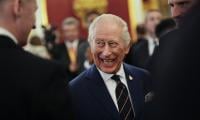 King Charles Attends 'series Of Meetings' Amid Growing Calls For His Abdication
King Charles Attends 'series Of Meetings' Amid Growing Calls For His Abdication -
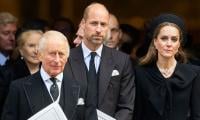 Prince William’s Visible Anxiety At Key Event Reveals Fears For King Charles’ Health
Prince William’s Visible Anxiety At Key Event Reveals Fears For King Charles’ Health -
 Channing Tatum Celebrates Hunter Theunis Botha's Death
Channing Tatum Celebrates Hunter Theunis Botha's Death -
 'Spider-Man: Brand New Day' Director Reveals What Fans Can Expect From The Movie
'Spider-Man: Brand New Day' Director Reveals What Fans Can Expect From The Movie -
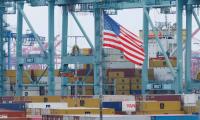 US Government To Cease Collecting Tariffs After Supreme Court Ruling
US Government To Cease Collecting Tariffs After Supreme Court Ruling -
 King Charles Finally Receives Good News About Reunion With Lilibet, Archie As Harry And Meghan Reach Agreement
King Charles Finally Receives Good News About Reunion With Lilibet, Archie As Harry And Meghan Reach Agreement -
 'House Of The Dragon' Season Three Promises Total Chaos As 'A Knight Of The Seven Kingdoms' Final Episode Drops
'House Of The Dragon' Season Three Promises Total Chaos As 'A Knight Of The Seven Kingdoms' Final Episode Drops -
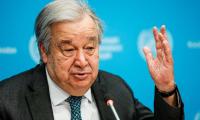 ‘Global Human Rights Are Under Attack,’ UN Chief Antonio Guterres Issues Stark Warning
‘Global Human Rights Are Under Attack,’ UN Chief Antonio Guterres Issues Stark Warning -
 Demi Lovato Bravely Admits She Is ‘not Ashamed’ Of Having Bipolar Disorder
Demi Lovato Bravely Admits She Is ‘not Ashamed’ Of Having Bipolar Disorder -
 Can Humans Reverse Aging? Harvard Scientist Predict Revolutionary Breakthrough
Can Humans Reverse Aging? Harvard Scientist Predict Revolutionary Breakthrough -
 How Liam Payne’s Death Impacted Awareness About Mental Health
How Liam Payne’s Death Impacted Awareness About Mental Health



